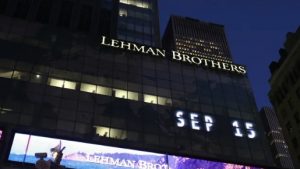
Cashing In On Failure
//
 Trademark application scenarios can be funny. One classic example is the post-“event” rush to file trademarks associated with zeitgeist-capturing moments, e.g., the numerous attempts to trademark “Philly Special” after the greatest football play of all time run during the Philadelphia Eagles’ upset win over the Patriots in Super Bowl LII. (Sports trademarks impresario Josh Gerben did a great recap on his blog of the trademark filing shenanigans that ensued.) Or as IP Watchdog reported, in the wake of the famous Trump “covfefe” tweet, enterprising applicants filed “32 trademark requests include two hashtag versions of the word, two companies seeking to claim the phrase ‘Covfefe Coffee’ and 25 attempts to trademark the word alone. The requests were submitted both by companies and individuals, including a New York man who wants to use the word to sell clothing for domestic pets as well as costumes, footwear, hats and maternity outfits for humans.” Considering the success rate of this strategy, it is fair to consider such applications as $300 or so lottery tickets — where there is no guarantee that you will even end up with the lottery ticket at all. But still, people file in the hopes of hitting it big.
Trademark application scenarios can be funny. One classic example is the post-“event” rush to file trademarks associated with zeitgeist-capturing moments, e.g., the numerous attempts to trademark “Philly Special” after the greatest football play of all time run during the Philadelphia Eagles’ upset win over the Patriots in Super Bowl LII. (Sports trademarks impresario Josh Gerben did a great recap on his blog of the trademark filing shenanigans that ensued.) Or as IP Watchdog reported, in the wake of the famous Trump “covfefe” tweet, enterprising applicants filed “32 trademark requests include two hashtag versions of the word, two companies seeking to claim the phrase ‘Covfefe Coffee’ and 25 attempts to trademark the word alone. The requests were submitted both by companies and individuals, including a New York man who wants to use the word to sell clothing for domestic pets as well as costumes, footwear, hats and maternity outfits for humans.” Considering the success rate of this strategy, it is fair to consider such applications as $300 or so lottery tickets — where there is no guarantee that you will even end up with the lottery ticket at all. But still, people file in the hopes of hitting it big.
In an interesting twist on the amusing trademark application identification game, the Federal Circuit released an opinion last week in an appeal from a set of TTAB opposition proceedings. (As usual, a good recap of the decision can be found on patentlyo.com, among other of the usual IP news haunts.) As readers of a certain age will recall, prior to its economy-cratering collapse in 2008 the investment bank Lehman Brothers, at least in the words of the Federal Circuit, “was one of the largest investment banks in the United States, with hundreds of billions of dollars in assets under management and more than 25,000 employees in offices worldwide.” One of the entities that purchased parts off the Lehman scrap heap was Barclays, which found itself the proud owner — and licensor back to Lehman Brothers itself as it unwound its operations — of Lehman’s trademarks. Over time, Barclays let all the Lehman trademark registrations expire. Then the fun started.
googletag.cmd.push( function() { // Enable lazy loading. googletag.pubads().enableLazyLoad({ renderMarginPercent: 150, mobileScaling: 2 }); // Display ad. googletag.display( "div-id-for-top-300x250" ); googletag.enableServices(); });In 2013, five years after Lehman’s implosion, an entity called Tiger Lily decided to apply for the Lehman Brothers trademark — in connection with the sale of “beer and spirits.” In fact, the Lehman Brothers whisky that the company offered was the subject of quite a bit of media attention, including from the BBC. Tiger Lily’s trademark filing sparked Barclays into action, with the company filing for its own Lehman Brothers trademark in connection with the more-expected class of financial services. That spurred Tiger Lily to file yet another Lehman Brothers trademark application, this time for “bar services” — with all these tit-for-tat filings ending up in three trademark opposition proceedings in the USPTO that were eventually consolidated into one proceeding.
 Sponsored Upcoming CLE Deadline? Make PLI.edu Your One Stop For All Things Compliance PLI makes compliance easy so you can get back to your practice. Log in to seamlessly track your progress and stream the CLE credits you… From PLI
Sponsored Upcoming CLE Deadline? Make PLI.edu Your One Stop For All Things Compliance PLI makes compliance easy so you can get back to your practice. Log in to seamlessly track your progress and stream the CLE credits you… From PLI The PTO proceedings ended up in a win for Barclays, based in part on the demonstration that the Lehman Brothers mark was used — and still recognized — in the collectible market for original Lehman promotional swag and appeared prominently “in pop culture, including movies, television shows, and music.” As a result, the TTAB found that it was reasonable to assume that Barclays could eventually expand into offering Lehman products outside of banking services — including alcoholic beverages that would compete with the Tiger Lily offerings — and as such the risk of confusion as to the source of a whisky bottle emblazoned with the Lehman Brothers name was real. Having lost in the PTO, Tiger Lily took an appeal to the Federal Circuit.
In its recent decision, the Federal Circuit noted that the primary grounds for appeal centered on whether Barclays had abandoned the mark, as well as whether there was a true likelihood of confusion with respect to Tiger Lily’s sale of whisky. On abandonment, Tiger Lily’s argument failed because Lehman continues to operate as an asset manager in bankruptcy. And even though the bankruptcy will eventually expire and no Lehman will arise from the ashes of that proceeding, that element of the abandonment inquiry was mooted by the fact that “Tiger Lily has failed to show that use of the mark has yet been discontinued, and indeed Tiger Lily appears to concede that it has not.”
googletag.cmd.push( function() { // Enable lazy loading. googletag.pubads().enableLazyLoad({ renderMarginPercent: 150, mobileScaling: 2 }); // Display ad. googletag.display( "div-id-for-middle-300x250" ); googletag.enableServices(); }); googletag.cmd.push( function() { // Enable lazy loading. googletag.pubads().enableLazyLoad({ renderMarginPercent: 150, mobileScaling: 2 }); // Display ad. googletag.display( "div-id-for-storycontent-440x100" ); googletag.enableServices(); }); googletag.cmd.push( function() { // Enable lazy loading. googletag.pubads().enableLazyLoad({ renderMarginPercent: 150, mobileScaling: 2 }); // Display ad. googletag.display( "div-id-for-in-story-youtube-1x1" ); googletag.enableServices(); });Likewise, on the question of likelihood of confusion, the Federal Circuit credited the fact that “the LEHMAN BROTHERS mark has achieved a high degree of fame,” and would thus be “afforded a broad scope of protection.” Commensurate with that observation, the Federal Circuit found “that Tiger Lily’s attempts to capitalize on the fame of the LEHMAN BROTHERS mark weighs in favor of finding a likelihood of confusion.” As a result, the TTAB’s findings in Barclays’ favor were affirmed.
Ultimately, this case suggests that the Federal Circuit may hold to a higher standard trademark applicants that are aiming to profit off good — or even bad — will that they did not themselves earn in the marketplace. It beggars belief to suggest that Barclays itself has any ambition to get into the whisky business under the Lehman Brothers trademark. Or that any of Tiger Lily’s customers see the whisky they purchased as anything other than a nostalgic novelty item with no real connection to Lehman Brothers itself. At the same time, however, we can surmise that even closer confusion situations could arise in the future, based on an entity employing trademarks from a defunct brand name business of some kind. For any such aspirants, Tiger Lily presents a cautionary tale.
Sponsored Sponsored How Visionary GCs Can Find The Ideal Risk-Revenue Balance Can your legal team be an active driver of your organization’s revenue lifecycle management? Read on to find out. From Above The Law and Conga
Sponsored How Visionary GCs Can Find The Ideal Risk-Revenue Balance Can your legal team be an active driver of your organization’s revenue lifecycle management? Read on to find out. From Above The Law and Conga  Sponsored Why IP Assets Can Be An Attractive Investment Opportunity Yieldstreet is offering access to a well-known industry player. Here's how you can target long-term appreciation in patent portfolios. From Yieldstreet
Sponsored Why IP Assets Can Be An Attractive Investment Opportunity Yieldstreet is offering access to a well-known industry player. Here's how you can target long-term appreciation in patent portfolios. From Yieldstreet  Sponsored Know The Laws And Risks To Fortify Security With Seton Hall Law's Data Privacy And Security Compliance Certificate Program Gibbons Institute of Law, Science & Technology, and Institute for Privacy Protection – Seton Hall From Seton Hall University School of Law
Sponsored Know The Laws And Risks To Fortify Security With Seton Hall Law's Data Privacy And Security Compliance Certificate Program Gibbons Institute of Law, Science & Technology, and Institute for Privacy Protection – Seton Hall From Seton Hall University School of Law  Sponsored A Summer Associate’s Guide To Thriving In The Biglaw Spotlight Congrats On Being A Summer Associate! Now Don’t F**k It Up. From Kinney Recruiting
Sponsored A Summer Associate’s Guide To Thriving In The Biglaw Spotlight Congrats On Being A Summer Associate! Now Don’t F**k It Up. From Kinney Recruiting Please feel free to send comments or questions to me at [email protected] or via Twitter: @gkroub. Any topic suggestions or thoughts are most welcome.
Gaston Kroub lives in Brooklyn and is a founding partner of Kroub, Silbersher & Kolmykov PLLC, an intellectual property litigation boutique, and Markman Advisors LLC, a leading consultancy on patent issues for the investment community. Gaston’s practice focuses on intellectual property litigation and related counseling, with a strong focus on patent matters. You can reach him at [email protected] or follow him on Twitter: @gkroub.
googletag.cmd.push( function() { // Enable lazy loading. googletag.pubads().enableLazyLoad({ renderMarginPercent: 150, mobileScaling: 2 }); // Display ad. googletag.display( "div-id-for-bottom-300x250" ); googletag.enableServices(); }); Sponsored Sponsored A Summer Associate’s Guide To Thriving In The Biglaw Spotlight Congrats On Being A Summer Associate! Now Don’t F**k It Up. From Kinney Recruiting
Sponsored A Summer Associate’s Guide To Thriving In The Biglaw Spotlight Congrats On Being A Summer Associate! Now Don’t F**k It Up. From Kinney Recruiting  Sponsored Upcoming CLE Deadline? Make PLI.edu Your One Stop For All Things Compliance PLI makes compliance easy so you can get back to your practice. Log in to seamlessly track your progress and stream the CLE credits you… From PLI Topics
Sponsored Upcoming CLE Deadline? Make PLI.edu Your One Stop For All Things Compliance PLI makes compliance easy so you can get back to your practice. Log in to seamlessly track your progress and stream the CLE credits you… From PLI Topics Gaston Kroub, Intellectual Property, Lehman Brothers
Introducing Jobbguru: Your Gateway to Career Success
The ultimate job platform is designed to connect job seekers with their dream career opportunities. Whether you're a recent graduate, a seasoned professional, or someone seeking a career change, Jobbguru provides you with the tools and resources to navigate the job market with ease.
Take the next step in your career with Jobbguru:
Don't let the perfect job opportunity pass you by. Join Jobbguru today and unlock a world of career possibilities. Start your journey towards professional success and discover your dream job with Jobbguru.
Originally posted on: https://abovethelaw.com/2022/06/cashing-in-on-failure/